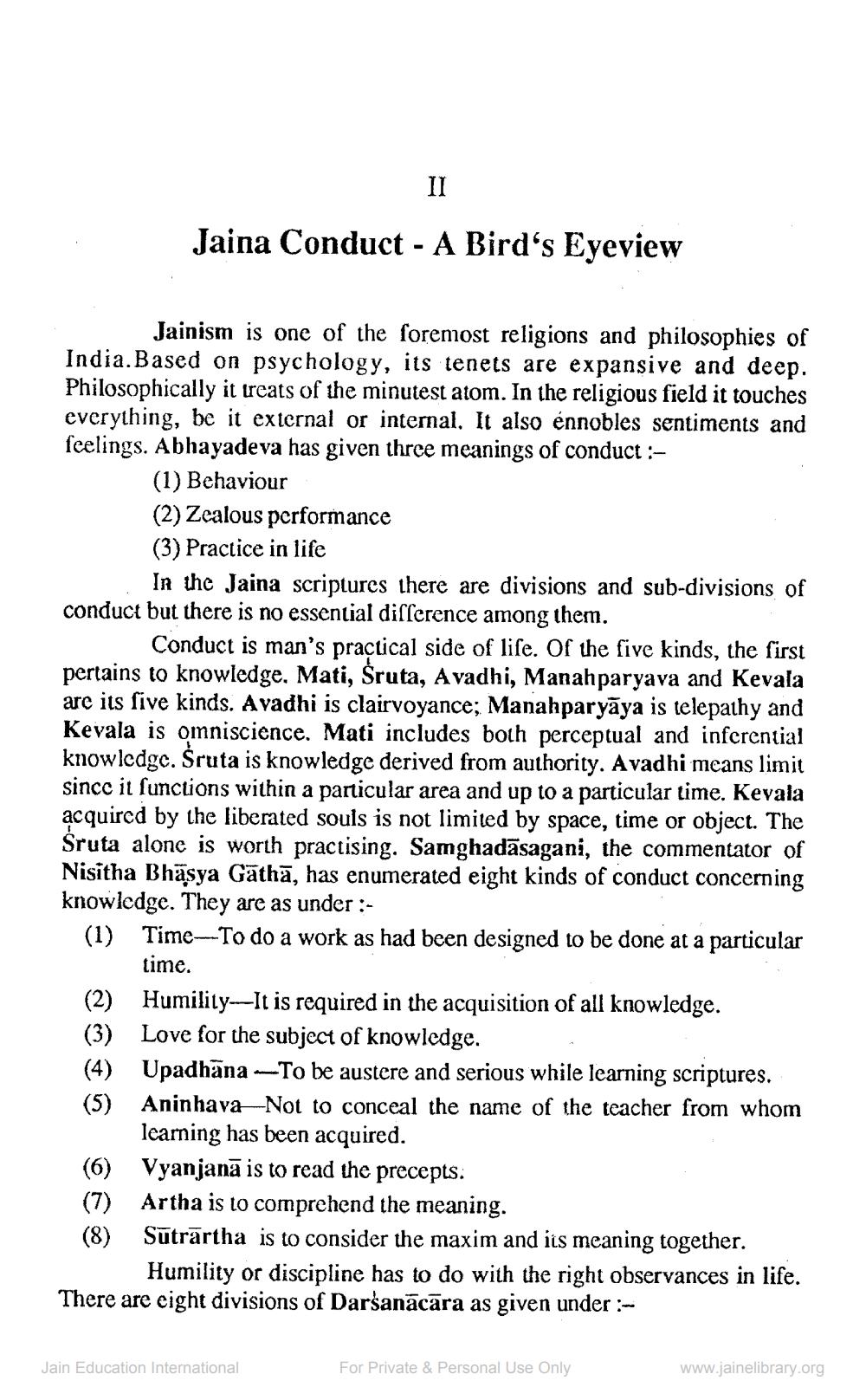________________
Jaina Conduct - A Bird's Eyeview
Jainism is one of the foremost religions and philosophies of India.Based on psychology, its tenets are expansive and deep. Philosophically it treats of the minutest atom. In the religious field it touches everything, be it external or internal. It also ennobles sentiments and feelings. Abhayadeva has given three meanings of conduct :
(1) Behaviour (2) Zealous performance (3) Practice in life
In the Jaina scriptures there are divisions and sub-divisions of conduct but there is no essential difference among them.
Conduct is man's practical side of life. Of the five kinds, the first pertains to knowledge. Mati, Šruta, Avadhi, Manahparyava and Kevala are its sive kinds. Avadhi is clairvoyance; Manahparyāya is telepathy and Kevala is omniscience. Mati includes both perceptual and inferential knowledge. Śruta is knowledge derived from authority. Avadhi means limit sincc it functions within a particular area and up to a particular time. Kevala acquired by the liberated souls is not limited by space, time or object. The Sruta alone is worth practising. Samghadāsagani, the commentator of Nisitha Bhāsya Gāthā, has enumerated eight kinds of conduct concerning knowledge. They are as under :(1) Time--To do a work as had been designed to be done at a particular
time. (2) Humility-It is required in the acquisition of all knowledge (3) Love for the subject of knowledge. (4) Upadhana - To be austere and serious while learning scriptures. (5) Aninhava-Not to conceal the name of the teacher from whom
learning has been acquired. (6) Vyanjanā is to read the precepts. (7) Artha is to comprehend the meaning. (8) Sūtrārtha is to consider the maxim and its meaning together.
Humility or discipline has to do with the right observances in life. There are eight divisions of Daršanācāra as given under :
Jain Education International
For Private & Personal Use Only
www.jainelibrary.org




